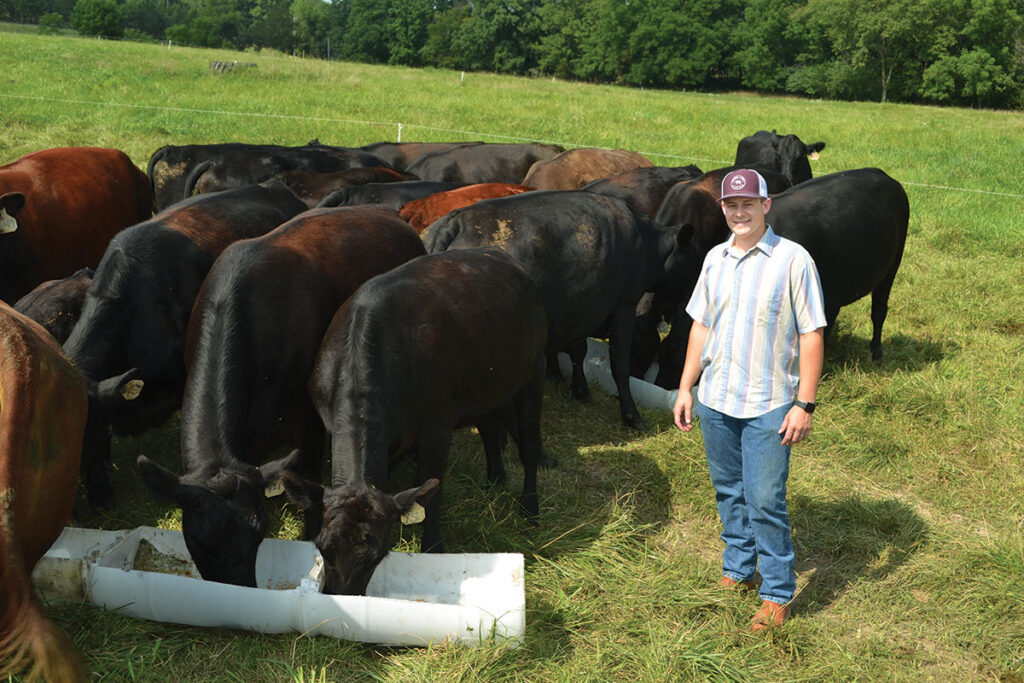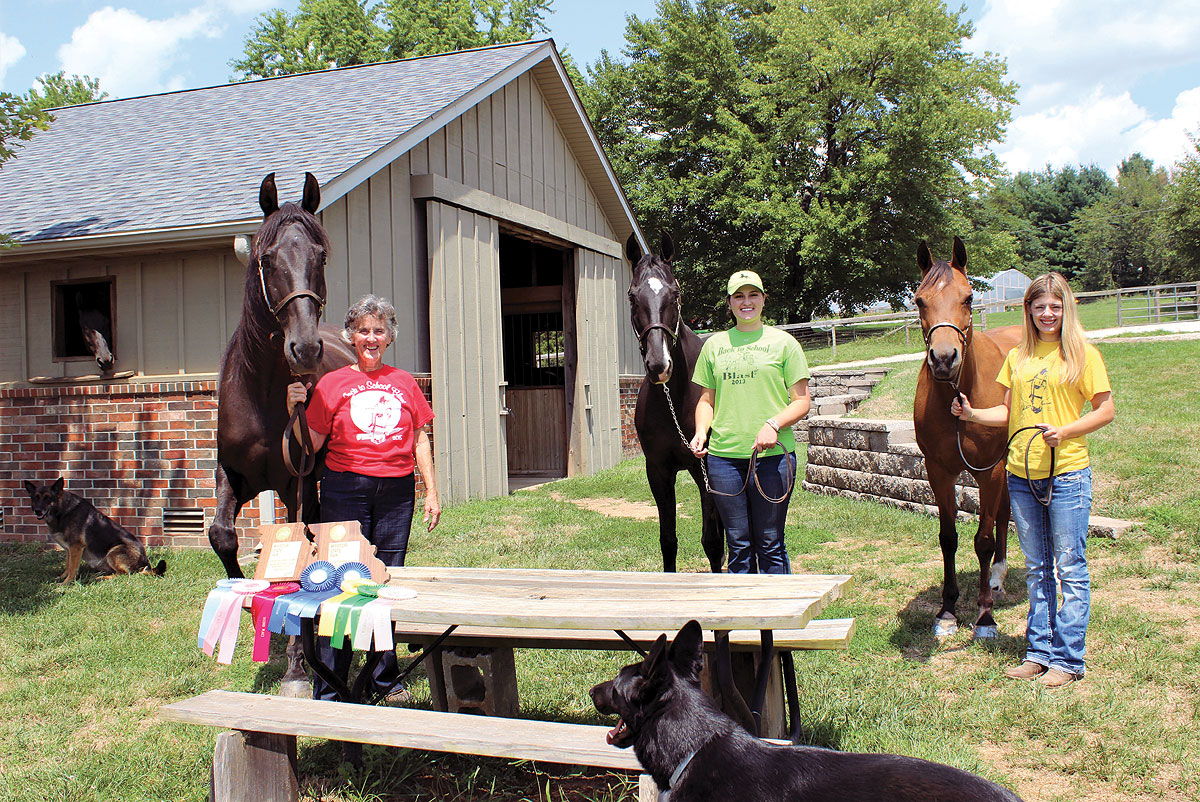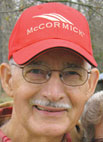
Three generations work together to raise their herd in a sustainable, healthy manner
CAMDENTON, MO. – As the third generation in what looks to become a fourth-generation farming family in Camden County, Mo., Garrett Dyer is a busy man.
Currently farming in cooperation with his parents, Michael and Renee Dyer, and his grandparents, Jim and Sherry Meissert, Garrett and his wife, Alyssa are also working on the next generation at Spencer Creek Farms, with daughters, Ava, age 4, and Sutton, age 1.
“Sutton is already really into this and would much rather be outside with her dad and the cows, than inside with me and Ava,” Sherry said with a laugh.
Together, Garrett, his father and grandfather farm 200 acres that they own and rent another 140 on which they run a cow/calf operation of Angus-cross cattle. The partnership started in 1989.
Since 2016, Garrett has also worked for ITW EAE, a capital equipment company that supplies machines for printing circuit boards for the computer industry.
In 2015, the family beganmaking significant changes to their farming practices, looking to emphasize re-generational, sustainable farming.
“The idea is to find ways to cut down on the input to make the operation less labor intensive and more profitable,” Garrett explained. “For instance, we haven’t used fertilizer and haven’t brush-hogged in two years now.
“We’ve been doing mob grazing, which is when you put 30 cows on a 2- to 3-acre paddock for two days. It forces the cattle to be less selective in what they eat and mows the field right down. We just got water installed in more of our paddocks and that really helps.”
Before waterers were installed in all of the paddocks, they would haul water in to their cattle using a jon boat.
“That is pretty labor intensive so when we got the waterers installed, that was a lot better,” Garrett explained. “Still, it is easier to haul water than to get shade to these cows. Getting enough shade in for your black cows is a real challenge.”
Garrett is glad to have his paddocks and patterns with cross-fencing well-established at this point.
“The idea is to find ways to cut down on the input to make the operation less labor intensive and more profitable. For instance, we haven’t used fertilizer and haven’t brush-hogged in two years now.
— Garrett Dyer
“The cows are so used to it now,” Jim added. “You don’t even have to worry about that back hot fence. The cows are only interested in going forward, not back.”
“That first year was hard, changing our practices,” Garrett admitted. “Now it is working well. We use intensive grazing, moving cows every five to seven days, with two days on hay pastures.”
These practices also cut down on a number of troublesome weeds and other unwanted species they have to deal with like locusts and persimmon sprouts.
In addition to their grazing practices, Garrett has found a charcoal-based supplement that passes through the cow’s digestive system, absorbing excess nutrients while doing so, which are then deposited on the soil where they do a slow release.
“We are doing a test this year with two different groups of our cattle,” Garrett explained. “We’ll be getting our soil tested later this year and see how it all works out. We have tried different things over the years to see what works and what doesn’t. I got an old concrete mixer which we use to mix the charcoal, a garlic salt and minerals in with the feed. We’ve found the mineral supplement is as important as vaccinations in terms of the overall health of our cows. I’ve also been getting a brewers grain from one of the local breweries a couple of times a week and that helps, too.
“We use a 16 percent heavy corn ration but this is not a feed lot environment. People want to know where their food comes from these days and that’s important. We raise quality beef locally. Our motto is ‘Local Beef Raised Right.’”
Like so many others raising beef in the Ozarks, Garrett recognizes the importance of the grass that he raises.
“We have a lot of orchard grass, Timothy, blue stem and Indian grass. The future plan is get more warm-season grasses in here,” he said. “It takes different kinds of management practice to get these grasses in there but it’s important. We only feed hay one to two months of the year, which we now buy. We do 1,000 bales in cooperation with our neighbors, helping with the cutting and baling of that and that’s easier for all of us.”
Spencer Creek Farms offers customers farm-raised, grass-fed beef raised under their careful eye. Customers can choose from individual cuts, bundles or larger quantities of drug- and hormone-free beef. The family also strives to raise their cattle in the most humane and stress-free environment as possible.
“It’s just lots of TLC; tender, loving care,” Garrett said with a smile.







